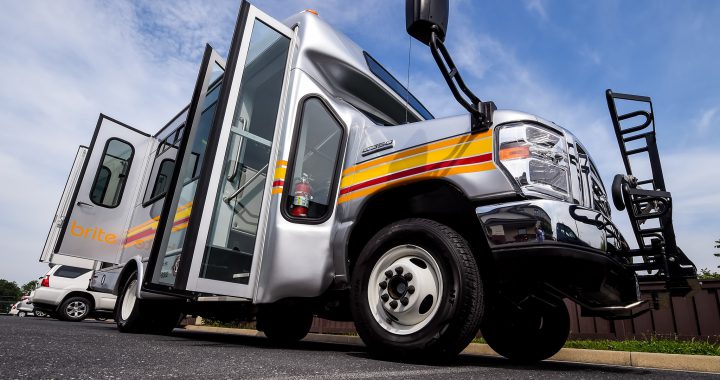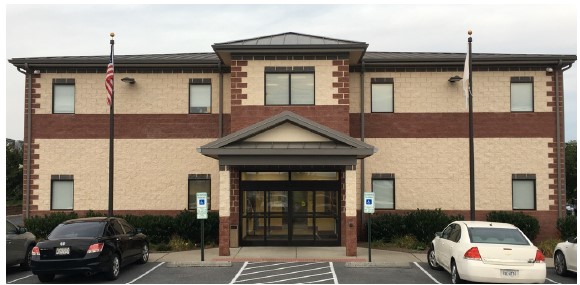News
CSPDC Issues Notice of Award for On-Call Consultant Program
The CSPDC began reprocuring our On-Call Consultant program in 2021 and this month notice of decision to award was issued for nine selected firms. Created in 2012, the program provides the CSPDC, our 21 jurisdictions, and 2 Metropolitan Planning Organizations quick access to competitively procured consultants. While there are many benefits to the program, the most notable are reduced operational expenses and quicker turnaround on projects. A wide variety of planning and technical services can be obtained through the program and both the CSPDC and many of our region’s jurisdictions have successfully used our On-Call program. Additionally, selected transportation engineering consultants underwent VDOT’s pre-award audit, making them eligible for state and federally funded projects. Our new bench of consultants include:
1. Kimley – Horn & Associates (KHA)
2. A. Morton Thomas and Associates (AMT)
3 Timmons Group
4. Whitman, Requardt, & Associates (WRA)
5. Vanasse, Hangen, & Brustlin (VHB)
6. Draper Aden Associates (DAA)
7. Mangum Economics
8. Colley Architects
9. Launch! Consulting
The Federal Transit Administration Awards Central Shenandoah Planning District Commission with Bus and Bus Facilities Grant
~ Rehabilitating BRITE Transit’s transportation hub in downtown Staunton~
(STAUNTON): Last week, the Federal Transit Administration (FTA) announced its award of $915,600 in Bus and Bus Facilities Program funding to BRITE Transit, a service of the Central Shenandoah Planning District Commission (CSPDC). BRITE Transit provides bus service to seven localities in the Shenandoah region. The funding will enable the agency to rehabilitate its transit hub in Staunton, Virginia. CSPDC is providing a $45,600 local match accompanied by a $177,900 state match from the Virginia Department of Rail and Public Transportation (DRPT).
“So many BRITE Transit riders pass through this parking lot each day. This grant enables us to create a safe, accessible, multimodal transit hub for them,” stated Bonnie Riedesel, Executive Director of the Central Shenandoah Planning District Commission. “We look forward to our continued partnership with FTA, DRPT, and the City of Staunton to create a transit asset and public space that will benefit the BRITE System for years to come.”
The FTA Bus and Facilities grant program makes federal resources available to states and their direct recipients to replace or restore buses and associated bus facilities including innovation enhancements supporting low or no emission vehicles.
“This project is a prime example of how transit agencies can partner with DRPT to develop high-quality grant applications for discretionary federal funding. By leveraging a combination of local, state, and federal funding, agencies like CSPDC are helping improve, innovate, and modernize transit in Virginia,” stated Jennifer DeBruhl, Acting Director of the Department of Rail and Public Transportation. “As Virginians return to the office, we urge them to Rediscover Your Ride by choosing public transportation.”
The CSPDC transit hub rehabilitation project will redefine the surface parking lot with dedicated space for bus parking, an ADA-accessible passenger boarding and alighting platform, add vehicular parking for “kiss and ride” transit riders, and include passenger facilities like shelters, benches, and safety lighting. The project will also add an electrical conduit for electric vehicle charging stations. The project is anticipated to be completed over the next two years.
“This is wonderful news. The upgrades to the Lewis Street Hub are definitely needed. It will make it much easier to catch the bus and make transfers,” Becky Messer, BRITE passenger and BRITE Technical Advisory Committee member.
CSPDC Hosting Regional Roundtable on Main Street Resiliency
The CSPDC will host a regional roundtable focused on Main Street Resiliency on Thursday, April 7th at 9:00 a.m. Join the Regional Roundtable to learn pandemic recovery strategies for your downtown. Presentations by Matthew Wagner, Chief Program Officer at Main Street America, and Courtney Mailey, a Community Revitalization Specialist at Virginia Main Street, will cover current trends and best practices to support the economic recovery of local main streets. The CSPDC’s COVID-19 Economic Analysis concluded that downtown areas were most heavily impacted by the pandemic and will take longer to recover compared to the rest of the region. The analysis studied downtown areas in the following cities and towns: Staunton, Harrisonburg, Waynesboro, Buena Vista, Lexington, Bridgewater, Broadway, Monterey, and Hot Springs. Featuring research by Main Street America and Virginia Main Street, the CSPDC’s regional roundtable will provide takeaways applicable to all localities in the Central Shenandoah region.
Nine Firms Selected for CSPDC’s On-Call Consultant Program
BRITE Transit Office Space for Lease
The BRITE Transit Facility, 51 Ivy Ridge Lane, Fishersville, currently has office space available.
- 7,200 Square Feet
- Offices, Conference Rooms, Lobby, and Breakrooms
- High Speed Internet/Fiber
- Easy Access to Interstate
- Lots of Exterior Windows
- Elevator and Stair Access
- Handicap Access
- Ample, Free Parking
- Public Utilities
Announcements
Please stay tuned for events and more information from the CSPDC.
Archives
- February 2025
- January 2025
- December 2024
- October 2024
- September 2024
- August 2024
- July 2024
- June 2024
- May 2024
- April 2024
- March 2024
- February 2024
- January 2024
- November 2023
- October 2023
- September 2023
- August 2023
- July 2023
- June 2023
- May 2023
- April 2023
- March 2023
- February 2023
- January 2023
- December 2022
- October 2022
- September 2022
- August 2022
- July 2022
- June 2022
- May 2022
- April 2022
- March 2022
- February 2022
- January 2022
- December 2021
- November 2021
- October 2021
- August 2021
- July 2021
- June 2021
- May 2021
- April 2021
- March 2021
- February 2021
- January 2021
- December 2020
- November 2020
- October 2020
- September 2020
- July 2020
- June 2020
- May 2020
- April 2020
- March 2020
- February 2020
- January 2020
- November 2019
- October 2019
- September 2019
- June 2019
- May 2019
- April 2019
- March 2019
- February 2019
- January 2019
- December 2018
- October 2018
- September 2018
- August 2018
- July 2018
- June 2018
- May 2018
- April 2018
- March 2018
- February 2018
- January 2018
- December 2017
- November 2017
- October 2017
- September 2017
- August 2017
- July 2017
- June 2017
- May 2017
- April 2017
- March 2017
- February 2017
- January 2017
- December 2016
- September 2016


